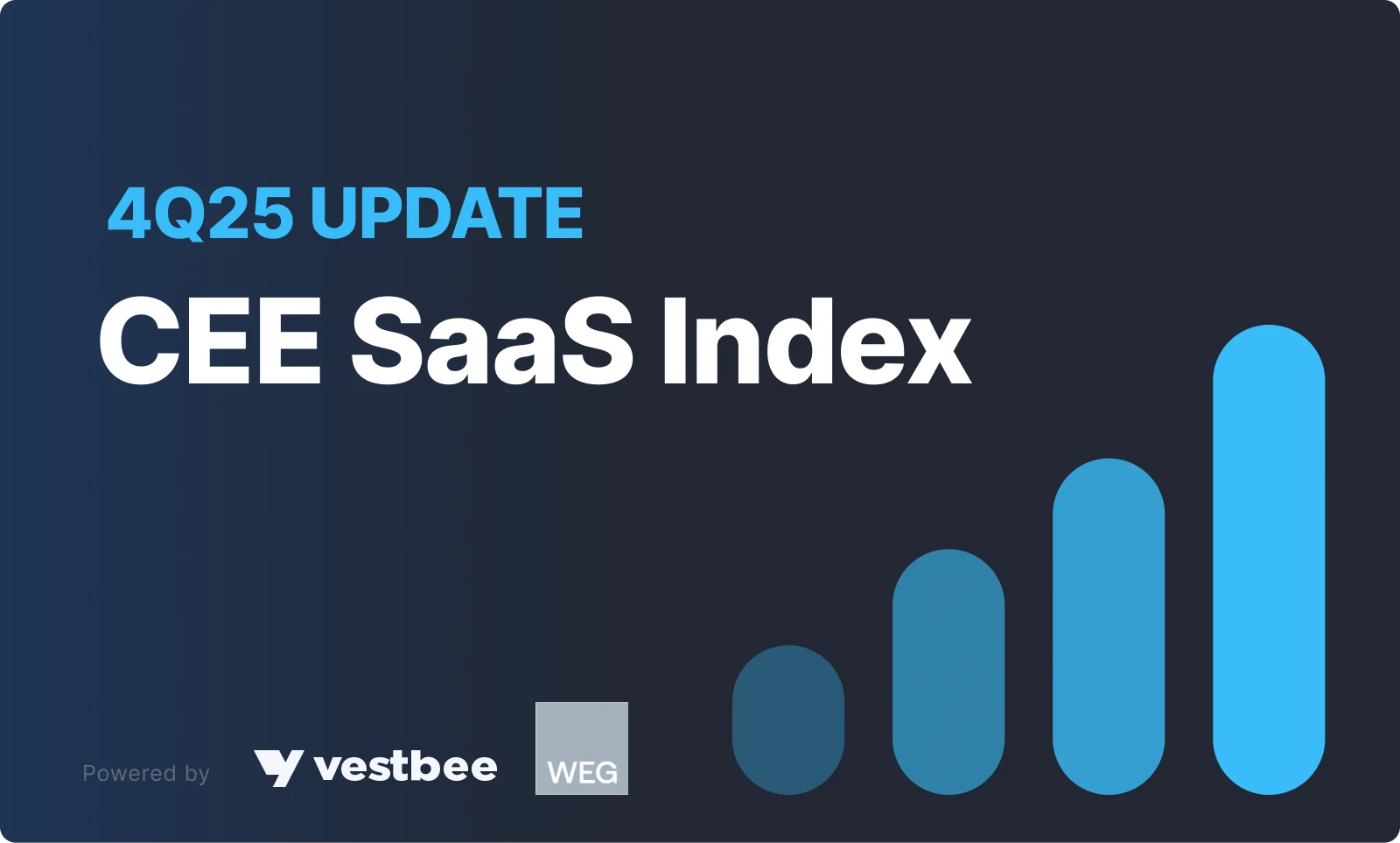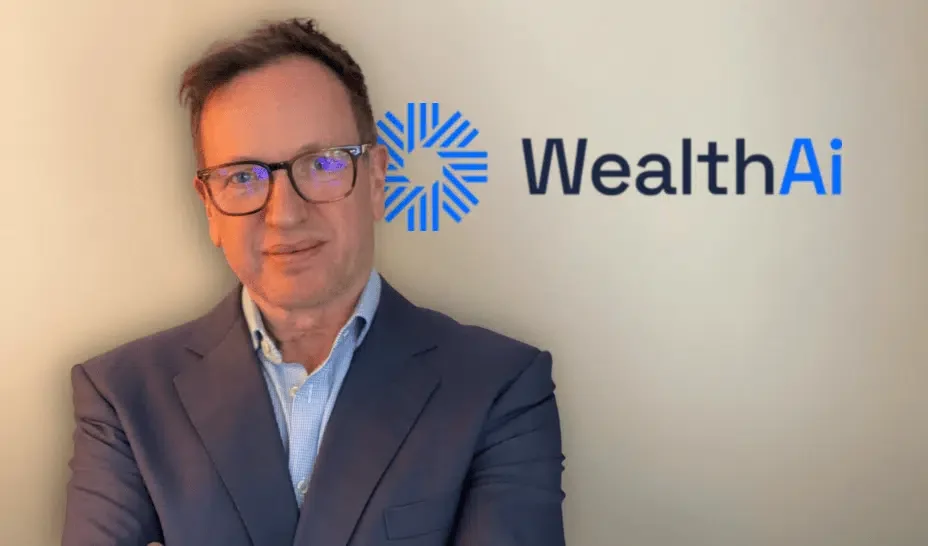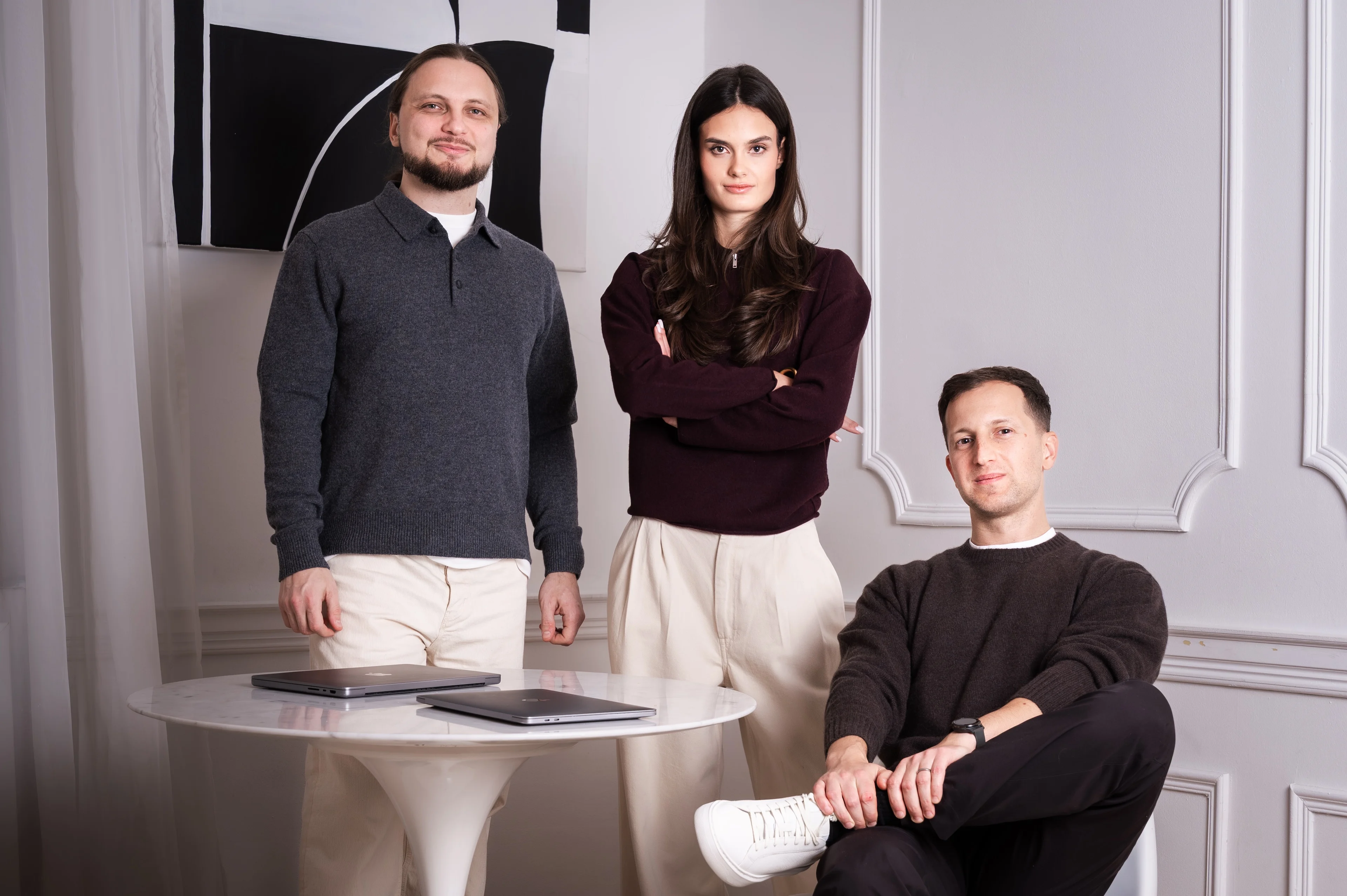Deeptech took center stage at the recent Vestbee’s CEE VC Summit in Warsaw — a key gathering for venture capital leaders across Europe and beyond. In a lively panel discussion, top investors Marta Mrozowicz, Principal at Heal Capital, Jone Vaituleviciute, Managing Partner at FIRSTPICK, Nader Sabbaghian, Partner at 360 Capital, Adam Niewinski, General Partner at OTB, and Wojciech Ratymirski, General Partner at Radix Ventures, confronted the tension at the heart of the European ecosystem. While the continent boasts world-class talent and research, systemic barriers continue to hold it back from becoming a true global powerhouse.
Vestbee unpacked the insights from the discussion, offering a snapshot of what’s holding back Europe’s deeptech sector, where real potential lies, and what needs to change to compete globally.
Riding the AI wave with caution
AI, particularly in its deeptech applications like advanced machine learning and robotics, has become one of the most closely watched technology areas, raising both high expectations and serious concerns. The field is developing rapidly, with significant progress and experimentation happening across regions. In Central and Eastern Europe, activity is notably high, driven by a strong technical talent pool and increasing interest in AI research and implementation.
“In our investments, we look at both the application and infrastructure layers, but more commonly the application, as AI products are being shipped every Thursday, every week,” said Jone Vaituleviciute. In the Baltics and beyond, AI startups are launching fast, with some receiving funding regardless of “what’s the performance or underlying idea.”
This frenzy makes it harder to place responsible bets, especially in early-stage deeptech. “There’s a lot of FOMO right now,” noted Vaituleviciute. “Big funds are chasing these solutions regardless of performance or the underlying idea. It’s very difficult to compete in areas like biotech, robotics, or lasers, because their development cycles are so much longer. This trend is shifting the mindset of VCs. Honestly, I’m not sure where the market is heading. Betting on something that might take 10 years to develop is a very different game.”
The application layer of AI use cases in industry, logistics, and healthcare remains dominant. But there’s growing interest in infrastructure-layer opportunities, where innovation is more complex, slower, and potentially more defensible. Investors also called attention to the overlooked hardware side of AI, such as sensor technology and edge computing, where Europe may hold a competitive edge. The best opportunities, they argued, will come from industry-specific, deeply verticalized AI models that solve real-world problems, not yet another chatbot or API wrapper.
Europe’s secret weapon — human capital
Europe’s engineering and research talent remains its most critical strength, as Adam Niewinski claimed. Yet the continent often struggles to translate that potential into globally competitive companies. “When we look at where deeptech is coming from, it often originates from universities,” he specified. But many of those innovations never leave campus. “Technology transfer from the universities? It’s far from perfect. There are some good examples, like in the UK, but overall, the process still needs to be substantially improved.”
For Niewinski, this gap represents a missed opportunity. He points out that one of Europe’s strengths is its dense network of universities — almost every city with a university has the potential to become the birthplace of transformative technologies or even future unicorns. The real challenge lies in creating the right structures to turn academic research into viable businesses. “We need to strengthen this technology transition to see more of it happen,” he says.
Moreover, the expertise is unevenly distributed across the continent, particularly in the field of AI. “At least from the Baltics, we feel that engineering capital in AI is quite limited,” Vaituleviciute admitted. “It's a relatively new area for us, and we are still a bit behind the rest of Europe, trying to catch up.”
Spacetech goes dual-use
Spacetech is no longer a niche reserved for government agencies or highly specialised research teams — it's now integral to defence, climate intelligence, and data infrastructure. “Spacetech, in reality, is in most cases dual-use,” said OTB’s GP. Whether it’s protecting the Amazon rainforest or monitoring conflict zones, satellite data is becoming critical for civil and military applications. “It also helps to protect the borders or, in the event of war, to understand what’s happening beyond the enemy lines,” he explained, “it’s really hard to do it in a different way than from space.”
Not all satellites operate cooperatively. Space competition is intensifying, and though it may not yet be considered a war, the rivalry is becoming more aggressive. As vital infrastructure like communications, surveillance, and navigation systems rely more heavily on orbital technologies, maintaining space sovereignty has become an urgent priority.
Investment is also expanding into new verticals like satellite servicing and in-orbit manufacturing. “We are much more into in-space economy, space servicing, in-space manufacturing,” said Nader Sabbaghian, 360 Capital’s Partner. One of the fund’s portfolio companies, Exotrail, operates a satellite constellation that supports law enforcement by tracking maritime traffic.
This convergence of commercial and defence use cases is making space a compelling, yet complex, area for early-stage investment. Investors are becoming involved at earlier stages as they recognize the growing necessity of space technologies.
Betting on the right sector
As Europe faces geopolitical turbulence, resource scarcity, and industrial realignment, deeptech investors are discussing aligning their strategies with the sectors most likely to receive long-term public support. For many, that means doubling down on energy, automation, and defence. This shift, as Wojciech Ratymirski noted, is reshaping how both governments and VCs approach investment. “Maybe less talking about ESG, but talking more about energy security and national security,” he said. In this framework, startups that contribute to resilience, sovereignty, and technological self-reliance are increasingly attractive to both public and private backers.
Ratymirski and others identified energy, automation, and defence as areas where startups could see long-term support, and where technologies like AI can serve as foundational tools. “AI will probably be in each one of them,” he added. “Because it’s so intuitive in every vertical right now.”
Scaling deeptech startups in a fragmented market
Despite a strong pipeline of innovation, Europe’s startup ecosystem often stumbles when it comes to scaling. One of the root causes, according to investors, is the continent’s fractured market landscape. “There is no single market here,” said Sabbaghian. “I was an entrepreneur, and it took me many years to go from country to country, market my product. You can’t sell to Spain with Italian salespeople. You can’t have it go to market in France with German staff.” By contrast, US and Chinese startups benefit from seamless access to large domestic markets, enabling faster growth and simplified go-to-market strategies.
Even more frustrating for founders is the conservatism of large European corporations. “They would much rather buy something from Microsoft or IBM than a European startup,” said Adam Niewinski. “This is a complete curse.” He described European corporates as more akin to public institutions — slow to adopt and risk-averse when it comes to new technologies. “It’s just much easier from Europe to sell to US corporations than to European corporations.”.
Public sector engagement could help break this cycle, but so far, it’s been inconsistent. Long-term government contracts, especially in defence and intelligence, can make or break a startup. “It’s super hard to sell from anywhere outside of the US to the US government, which is a huge technology client. In Europe, we don’t have it,” he said.
What deeptech VCs expect from founders?
For deeptech investors, choosing the right founder is as much about mindset and resilience as technology. “Honestly, those deeptech founders obviously understand everything better than I do,” said Sabbaghian. “So I just want to understand their track record and where they are coming from.” Founders pitching to deeptech VCs are expected to be fluent not only in engineering but also in vision, and to balance both with pragmatic execution.
Europe has the components to lead in deeptech — world-class talent, cutting-edge research, and strength in strategic industries like space, photonics, and manufacturing. But turning those advantages into global leadership will require more than vision — it will take structural reform, cultural change, and long-term public commitment.







